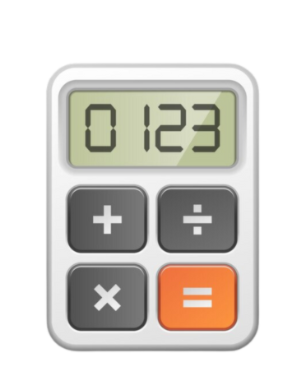How Can I Purchase and Sell Shares Using a Demat Account?
With Demat-based share trading, India’s traditional method of purchasing shares has become obsolete. Now, shares can be bought and sold instantly with just a click.
When you buy & sell shares in demat account using an online trading account, they are directly credited to your Demat account. Similarly, when you sell shares, they are debited from your Demat account in real-time.
A Demat account is a crucial requirement for trading or investing in the Indian stock market. However, before you begin trading, it’s important to understand what a Demat account is and how it works.
Simply having an online Demat account is not enough. To invest, an individual must also have a trading account linked to their bank account. Let’s dive into the concept of a Demat account, the process to Buy & Sell Shares in Demat Account, and how trading works in India.
Table of Contents
What Are Demat Accounts?
A Demat account (dematerialized account) is a digital account that securely stores the shares you buy through Indian stock exchanges like NSE and BSE. In India, Demat transactions are managed by Central Depository Services Limited (CDSL) and National Securities Depository Limited (NSDL).
Since its introduction in 1996, Demat accounts have become the preferred way for Indian investors to hold securities, eliminating the hassle of physical share certificates. With a Demat account, investors can buy & sell shares in Demat account and hold various financial instruments like stocks, bonds, mutual funds, and government securities effortlessly.
What Are Trading Accounts?
In India, a trading account enables investors to buy & sell shares in demat account on stock exchanges like NSE and BSE. It connects your Demat account and bank account, allowing seamless transactions. Opened with a SEBI-registered broker, a trading account is essential for real-time trading in stocks, commodities, and derivatives.
Costs Associated With Stock Market Trading in India
Account opening fees for both trading and Demat accounts may apply, although many brokers and depository participants in India waive these charges to attract new investors.
For Demat accounts, there are annual maintenance and transaction fees. Additionally, when you buy & sell shares in a Demat account through a trading account, you will incur brokerage fees and taxes like the securities transaction tax (STT).
It’s important to consider these charges, particularly transaction costs like brokerage, when opening Demat and trading accounts, as they can impact your overall returns.
How to Purchase Shares Using a Demat Account?
- Get a PAN Card
A Permanent Account Number (PAN) is essential for trading and purchasing shares in India. PAN cards are issued by the Income Tax Department, and you can apply for one online or through an agent. Once you obtain your PAN, you can proceed to open a Demat account. - Set Up a Demat Account and Online Trading Account
As mentioned earlier, Demat accounts in India are managed by CDSL and NSDL. You can approach a Depository Participant (DP) or a broker to open both a Demat account and an online trading account. Brokers make it easy to open these accounts.
Once your accounts are set up, you can select the stocks you want to buy & sell shares in demat account on the stock market. For phone-based orders, you will need to contact your broker, but some brokers may charge a small fee for such orders. However, online orders are usually free of charge. - Connect Your Bank Account
To trade shares, a bank account is required, just like the PAN card. If you don’t have a bank account, open one. When you’re ready to invest in the stock market, you will transfer funds from your bank account to your trading account. - Start Your Trading
After setting up your Demat and trading accounts, log in to your broker’s online trading platform. Choose the shares you want to buy & sell shares in demat account. Note that some brokers may charge a margin for purchasing shares beyond your available balance. Contact your broker to understand such charges.
How to Sell Shares Using a Demat Account?
The time has come to sell the shares you’ve invested in, whether because you’ve achieved the financial goal for which you bought that stock or because the stock has been consistently declining, and you don’t want to endure further losses
Whether you’re in profit or loss doesn’t matter right now. What’s crucial is understanding how to sell your shares. The simplest way is to sell at the current market price through a market order. However, this could result in selling at a price different from your expectation
To have more control, you can use a limit order or stop-loss order to sell at a specific price. You can also specify the number of shares you want to buy & sell shares in demat account . Once the order is executed, the profit or loss will be reflected in your Demat account, and you’ll exit your investment accordingly.
Conclusion
Many investors in India have gained valuable insights into how to buy & sell shares in Demat account online and are now earning substantial profits through stock trading.
To buy and sell shares in the Indian stock market, you must first open a Demat account, where you buy & sell shares in demat account. It’s crucial to choose a reputable and trustworthy broker when opening your account.
A reliable broker offers a smooth trading experience with affordable brokerage fees. However, it’s important to familiarize yourself with the trading platform before making any real investments in the market. Once you’re comfortable, you can start buying and selling shares in your Demat account to generate revenue.

FAQs
What options do I have for selling shares in a Demat account without needing a trading account?
Without a trading account, you won’t be able to buy & sell shares in Demat account. According to SEBI regulations, a trading account is mandatory to buy and trade stocks in the Indian stock market.
I own stocks in my Demat account; how can I see them?
You can obtain details of your Demat account holdings from your Depository Participant (DP), a stockbroker, a financial services company, or a bank. A Demat account functions like a savings account.
To check the shares and other investment securities in your Demat account, refer to the “Statement of Demat Holdings.” You can view your Demat statement through your DP’s online portal, website, or mobile app.
If you have multiple Demat accounts, you can get a consolidated view by accessing a Consolidated Account Statement (CAS) from your Central Depository. The CAS provides a detailed summary of all your assets, helping you track your buy & sell shares in Demat account effectively.
How does a Demat account facilitate the process to buy & sell shares in Demat account?
To buy & sell shares in Demat account on the secondary market, you must open both a Demat account and a trading account. The trading account links your bank account and Demat account, allowing you to complete your purchase or sale transaction.
When placing a buy or sell order, it must be recorded in the trading account for the selected stock.
Before placing an order to buy shares, ensure your bank account has sufficient funds. Once the order is executed, shares will automatically be transferred to or from your Demat account, depending on whether you buy & sell shares in demat account. The final step involves transferring funds to complete the transaction.
What documentation is required to open a Demat account in India?
The following documents are required to open a Demat account in India:
• Proof of Income: Accepted documents include Income Tax Return (ITR), pay slips, receipt slips, photo, and net worth declarations.
• Proof of Identity: You can submit a PAN card, Aadhaar card, voter ID, driving license, or passport. Identity cards issued by statutory bodies, public sector companies, or central and state governments are also valid.
• Proof of Address: Passport, voter ID, registered lease or sale agreement, driver’s license, or a bank statement (not older than 3 months) can serve as proof of address. An address in the spouse’s name is also acceptable.
How will my Demat account be affected if I don’t use it?
If your Demat account is declared inactive by the depository, you will not be allowed to perform any debit or credit transactions until the account is reactivated. To reactivate it, you will need to complete the entire Know Your Customer (KYC) process again.
